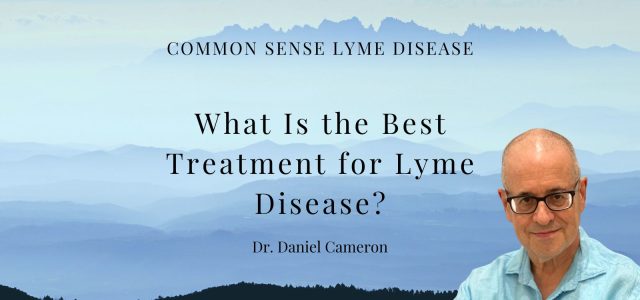Lyme Science Blog
Dr. Daniel Cameron, MD, MPH, is a nationally recognized leader for his expertise in the diagnosis and treatment of Lyme disease and other tick-borne illnesses. His weekly Lyme Disease Science blog features articles covering the latest research, insights and case reviews.
AI, Lyme Science Blog
Do All Ticks Carry Lyme Disease?
Do All Ticks Carry Lyme Disease? Patients often ask me, “Do all ticks carry Lyme disease?” The short answer is
AI, Lyme Science Blog
Does Lyme Disease Go Away? What Recovery Looks Like
Does Lyme Disease Go Away After Treatment? Does Lyme disease go away? It’s one of the most common—and most important—questions
Lyme Science Blog
Persistent Lyme Symptoms: Why I Still Treat When Others Stop
As a Lyme disease specialist, I’ve treated many patients who continue to suffer from persistent Lyme symptoms—even after completing a
Lyme Science Blog
Is Lyme disease contagious
Is Lyme Disease Contagious? Is Lyme disease contagious? That is one of the most common—and important—questions I hear from patients
Lyme Science Blog
Can Lyme Disease Make EDS Symptoms Worse or More Complex?
That’s a question I’ve heard more often in recent years—from patients, parents, and even colleagues. Ehlers-Danlos Syndrome (EDS) is already
Lyme Science Blog
Are you considering SOT for Lyme disease?
“What do you think about SOT?”She looked at me earnestly. She had already been through two rounds of antibiotics, herbal
Lyme Science Blog
Lyme disease was behind her seizures
It’s one of the most emotional stories parents share. They tell me their child was once full of energy and
Lyme Science Blog
What Is the Best Treatment for Lyme Disease?
When patients come to the office with Lyme disease, many have already been treated — yet they’re still sick. Others
AI, FT, Lyme Science Blog
Caring for Someone With Chronic Lyme Disease: What to Expect
Caring for Someone With Chronic Lyme Disease: A Caregiver Resource Families caring for a loved one with chronic Lyme disease









